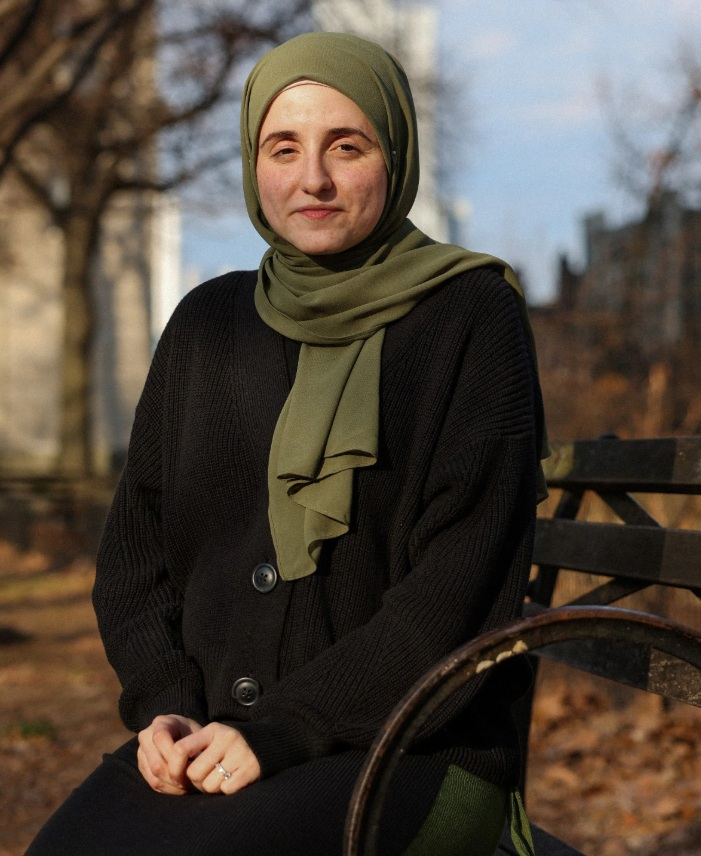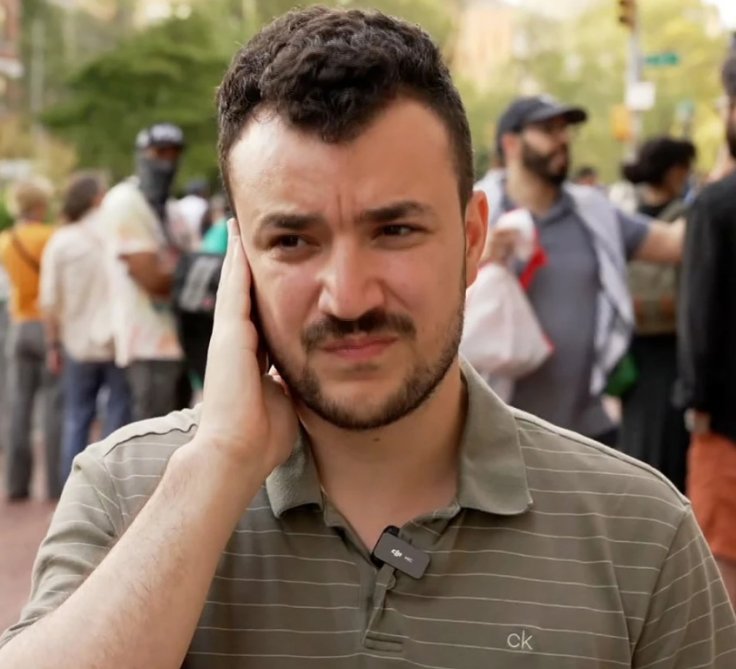The wife of "pro-Hamas" protester Mahmoud Khalil has shared her deepest concern as the Columbia University student faces deportation. Khalil, 29, a graduate student and legal U.S. resident, was involved in last year's anti-Israel demonstrations at Columbia University and was arrested by ICE on Saturday night.
The White House said that preparations are being taken to deport Khalil from the US but his wife, Noor Abdalla, who is eight months pregnant, told Reuters she is hoping he will be released before she gives birth to their child. "I think it would be very devastating for me and for him to meet his first child behind a glass screen," Abdalla said.
Fear and Hope

Khalil, a Palestinian born and raised in Syria, played a key role in leading protests against Israel at Columbia University last year. He also served as a mediator between students and university officials.
The demonstrations lasted for two weeks and were marked by violent incidents, with some Jewish students feeling unsafe attending classes.
His wife, Noor Abdalla, defended his actions, saying that his primary goal was to support his community through both advocacy and direct assistance.
Khalil's arrest is among the first steps taken by the Trump administration to follow through on its pledge to deport certain foreign students involved in the pro-Palestinian protest movement, which Trump has labeled as anti-Semitic.
Abdalla revealed that just two days before ICE agents arrived at their university-owned apartment, Khalil had asked if she knew what to do in case immigration officers came to their door. "I didn't take him seriously. Clearly I was naïve," said Abdalla, who is a U.S. citizen from the Midwest.
Khalil's arrest has sparked intense debate over whether the Trump administration violated his First Amendment rights by detaining him and trying to deport him. The president accused Khalil of being "pro-Hamas," while Secretary of State Marco Rubio said that the U.S. would revoke visas and green cards of "Hamas supporters in America."
Fate Hangs in Balance

After his arrest on Saturday, Khalil was initially held in New Jersey before being transferred to an immigration detention facility in Louisiana. On Monday, a judge temporarily blocked his deportation to allow time for his legal challenge to be reviewed.
During a brief hearing on Wednesday, the discussion largely centered on jurisdiction. One of Khalil's attorneys told the judge that they have been unable to have a single privileged phone call with their client.
This week, hundreds of people have protested his arrest, while Democrats have expressed concern over his detention without criminal charges. "When you come to the United States as a visitor, which is what a visa is, which is how this individual entered this country, on a visitor's visa, you are here as a visitor. We can deny you that visa," the U.S. top diplomat argued.
Rubio stated that if an individual applied for a student and "rile up all kinds of anti-Jewish student, anti-Semitic activities" and disrupting universities, their visa request would be denied.
He added: "If you actually end up doing that once you're in this country on such a visa, we will revoke it."
Responding to the backlash, Rubio justified the decision, emphasizing that Khalil's arrest "has nothing to do with free speech."
Rubio also said that if someone engages in such activities while holding a green card, the U.S. will revoke their residency and deport them.









